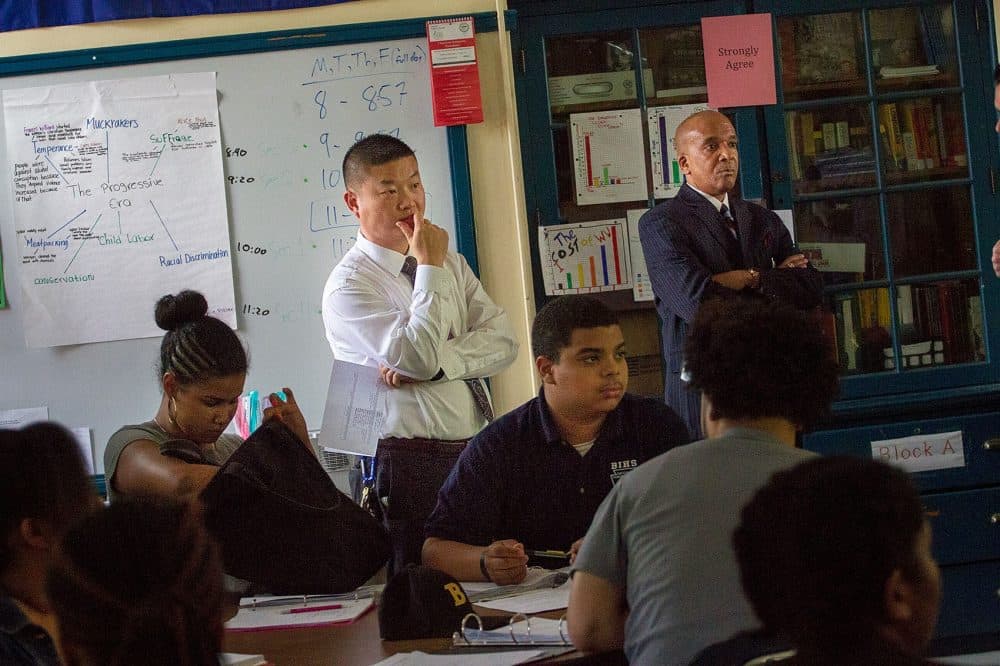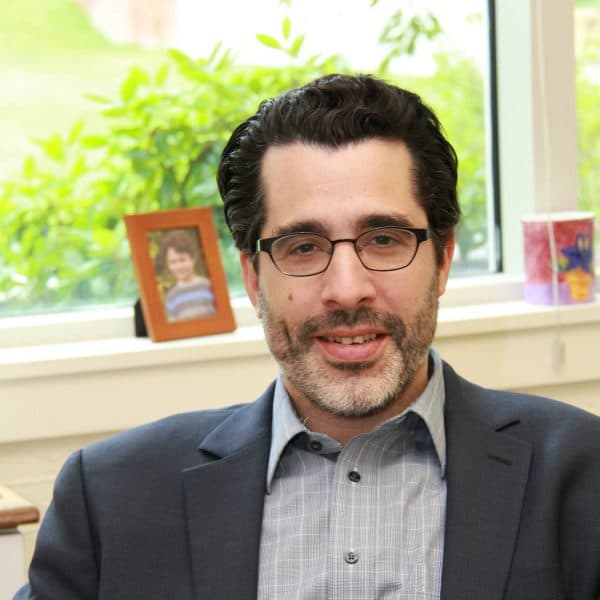Advertisement
Commentary
Should College Be The Goal For All Students?

Over the past decade, policymakers and education leaders have recognized that, while high school graduation and college enrollment rates were important benchmarks, they were not sufficient indicators of ultimate student success. As a result, many education analysts and school districts around the country began to place greater importance on college completion, and to track completion rates among cohorts of high school graduates.
Boston has been a leader in this effort. Since 2008, the city’s Success Boston initiative has united the Boston Public Schools (BPS), The Boston Foundation, the Boston Private Industry Council and area higher education leaders around the goal of improving student post-secondary enrollment, persistence and completion.
Earlier this month, Success Boston shared its latest results. While steady progress has been made, there remain concerning trends around college completion for Boston’s students of color (the majority of students), and especially for students from traditional public high schools (defined as non-exam schools or pilot schools), students who attend two-year colleges, male students and special education students.
These results raise an important, strategic question for educators and policymakers: Should college (two-year or four-year) be the goal for all students?
While steady progress has been made, there remain concerning trends around college completion for Boston’s students of color
Let’s get into the nitty-gritty.
According to Success Boston, the number of students who complete a four-year degree, within six years, is trending upward. More than half (51.6 percent) of the BPS class of 2011 finished college in six years. This marks a new record high for BPS. And Boston’s rate is substantially ahead of the national six year completion rate of 35 percent for urban districts. That’s good news.
Yet a closer look at the data tells a more sobering tale.
Even though, on average, the majority of BPS students who matriculated to college earned a degree in six years, only 37.7 percent of students who attended a traditional BPS high schools did so. (The average is inflated by the outcomes of students from schools like Boston Latin.) Meanwhile, college completion rates for males and special education students is 30.4 percent and 22.5 percent, respectively — below the national average.
Even worse are outcomes for BPS graduates who attend two-year colleges (about a third of all BPS 2011 graduates). Their graduation rate is 24 percent, trailing the national two-year college rate of 28 percent for graduation within four years.
These trends raise several key questions for the city. Controlling for students at Boston’s three exam high schools and several pilot schools, what progress has been made in terms of college completion? If deeper analysis shows progress across certain traditional public high schools and/or within certain student subgroups, what accounts for this progress? What secondary and post-secondary strategies should be documented and shared?
For example, are pilot schools using novel approaches that can be replicated by traditional public schools? Do more students need access to intensive middle school and high school academic preparation and coaching similar to that provided by programs such as the Steppingstone Foundation and SCS Noonan Scholars? Do more students need ongoing coaching and support once in college, offered either by college faculty and staff or by partner programs, such as Success Boston and The Posse Foundation?
But perhaps a more critical, more soul-searching and for many -- antithetical -- question ... is whether college completion is the right goal
But perhaps a more critical, more soul-searching and for many — antithetical — question for city and education leaders is whether college completion is the right goal for all of our students? If roughly three-quarters of BPS students do not earn associate’s degrees within six years, and over 60 percent of students from traditional BPS high schools do not complete any sort of college in the same time frame, is focusing on college enrollment and completion the right strategy?
Moreover, if many BPS students are enrolling, taking out loans, yet not earning a degree, and as a result, being saddled with debt — this raises more concerns. (In fact, debt burden of BPS graduates would be a good data-point for Success Boston and to track.)
For many students, college tuition may be too high, financial aid insufficient, academic supports minimal or course schedules too inflexible for those who have to work or raise families.
Thus, the city might consider expanding Success Boston goals and strategies to include alternative, less expensive post-secondary career pathways. Among these are bridge organizations, or “pathways intermediaries," that connect students with employers by providing job-specific technical training for in-demand, middle- and high-skill jobs. These include tech boot camps that offer skill-specific training in coding, design and data analytics, and often are completed within three to six months. Similar training models are emerging in health care and advanced manufacturing.
Success Boston’s ultimate goal — that all BPS students have access to quality and relevant post-secondary education and careers — is the right one. Yet given the sobering college completions numbers for many students, all of us who care about BPS students should ask the hard questions and be open to new alternatives.
